Rafael Mariano Grossi, Director General of the International Atomic Energy Agency (IAEA), made his first visit to China since he assumed office in 2019 from May 22 to 26 at the invitation of the China Atomic Energy Authority (CAEA).
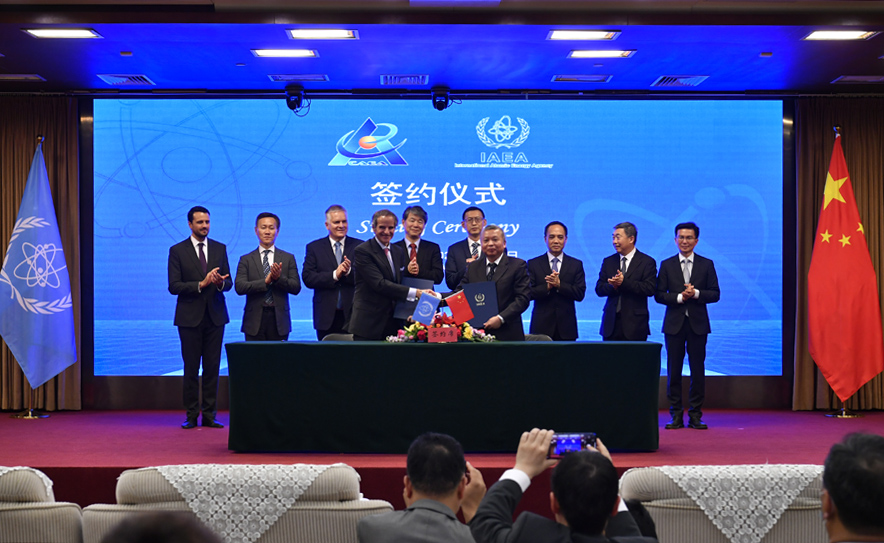
CAEA Chairman Zhang Kejian met with Director General Grossi on May 22. Zhang spoke highly of Grossi’s achievements in leading the IAEA to promote the use of nuclear energy in response to climate change, advance the diversified development and application of nuclear technologies, and help member states achieve the UN’s sustainable development goals. He appreciated Grossi’s efforts in coordinating and boosting nuclear safety and security cooperation, mediating sensitive and hotspot nuclear issues. Zhang also presented China’s progress in developing nuclear energy in a safe, active and orderly way, and in strengthening sci-tech innovation, industrial development, and civilian application of nuclear energy.
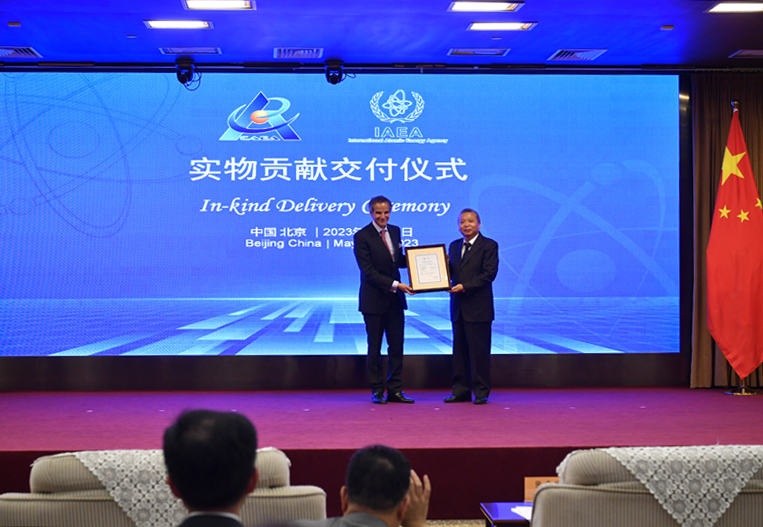
Zhang Kejian pointed out that the Global Development Initiative and Global Security Initiative put forth by China have set the course for steering the world into a new stage of balanced, coordinated and inclusive development and for coping with international security challenges. Noting China’s willingness to continue strengthening the all-round cooperation with IAEA, Zhang said we will actively explore a tripartite cooperation model involving China, IAEA and third parties, share more of our experience with the international community, and provide more public goods. He proposed to jointly promote the implementation of the Global Development Initiative and Global Security Initiative in the nuclear field, so as to make greater contributions to realizing the vision of “Atoms for Peace and Development”.
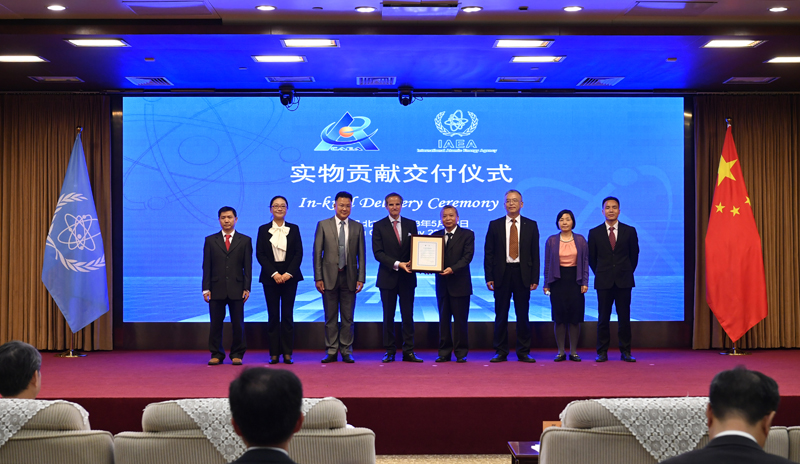
Zhang Kejian emphasized that Japan’s planned discharge of the radioactive wastewater at Fukushima into the sea is a grave issue concerning the global marine environment and public health. Recognizing IAEA as the most important intergovernmental international organization in the nuclear field, he hoped the IAEA Task Force will conduct a rigorous review of Japan’s discharge plan in an objective, impartial and scientific spirit, and make sure the final evaluation report will fully reflect the opinions of experts from all parties and stand up to the test of history rather than being an endorsement for Japan’s discharge plan.
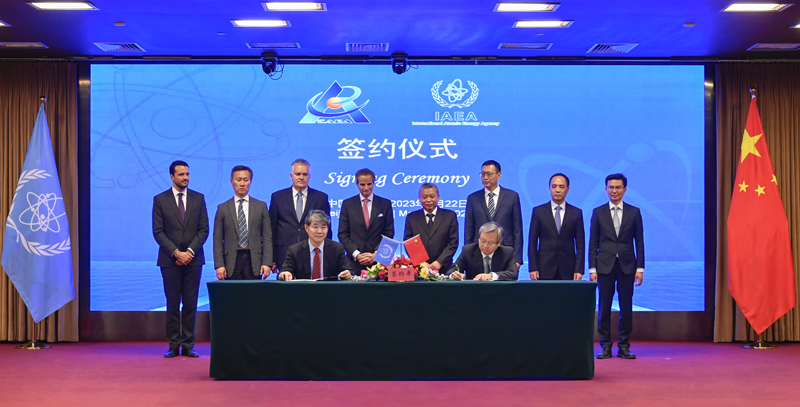
Grossi praised the China-proposed Global Development Initiative and Global Security Initiative, applauded China’s achievements in nuclear energy development and application of nuclear technology, and fully affirmed the outcomes of the long-term cooperation between China and IAEA. He expressed his wish to further deepen the cooperation in various fields and reaffirmed that they will carry out a thorough, rigorous and effective evaluation, supervision and independent monitoring of the disposal of contaminated wastewater in Fukushima before,during and after the discharge.
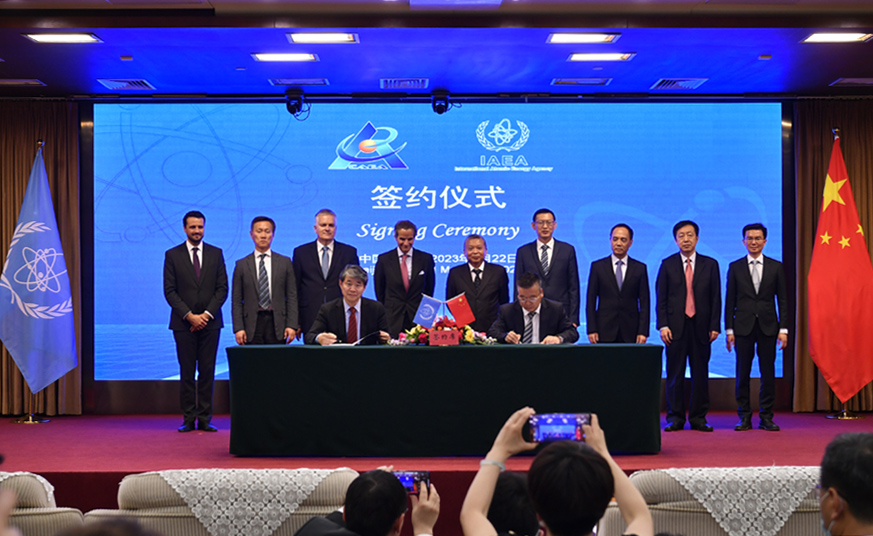
Before the meeting, Zhang Kejian and Grossi signed the Actual Arrangements for Cooperation in Small Modular Reactors and Nuclear Infrastructure Development Between CAEA and IAEA. They also bore joint witness to the signing of multiple cooperation agreements between IAEA and CAEA, China National Nuclear Corporation (CNNC), Hefei Institutes of Physical Science of the Chinese Academy of Sciences, and China Institute of Atomic Energy (CIAE), separately. The agreements covered a wide range of subjects, including climate response with nuclear energy, cancer treatment with radiotherapy services, nuclear data & fuel cycle, and communication activities. CAEA delivered to IAEA a batch of specialized nuclear security equipment donated by Chinese enterprises, and 38 of IAEA’s nuclear safety standards and nuclear security guides translated by the Chinese side.
The IAEA Board of Governors reappointed Grossi as the Director General in March this year for another four-year term, which officially starts in the coming December. During his visit, Grossi will meet with government officials and heads of main nuclear companies. He will also visit Tsinghua University, China Institute of Atomic Energy, State Nuclear Security Technology Center, Nuclear and Radiation Safety Centre, Shidao Bay High Temperature Gas-cooled Reactor Pebble-bed Module (HTR-PM) demosdtration project, and Shanghai Electric Nuclear Power Equipment Manufacturing Base, in the endeavor to advance IAEA’s cooperation with China in relevant fields.